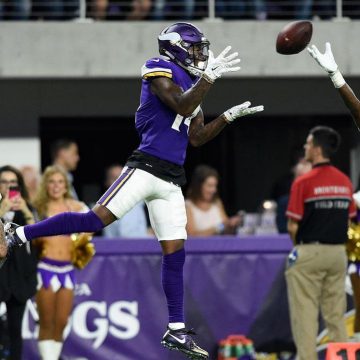
State Representative Pat Garofalo told Minnesota Public Radio he plans to introduce a bill to regulate sports betting. Garofalo’s Minnesota sports betting bill is the latest in over a dozen post-PASPA bills in the United States.
Pat Garofalo’s legislation comes after the Minnesota State Department of Public Safety said it plans to stiffen enforcement of illegal sports betting in the state. The Minnesota DPS’s enforcement efforts are focused on local bookmakers — not offshore sportsbooks and sports betting exchanges.
Enforcing anti-gambling laws against offshore operators would be next to impossible for a state like Minnesota. Rep. Garafalo wants to ensure a smooth transition for land-based gaming operations, though, if the United States Supreme Court were to rule against the Professional and Amateur Sports Protection Act (PASPA).
New Jersey’s Sports Betting Case
At present, the State of New Jersey has a challenge to PASPA before the Supreme Court. When New Jersey tried to legalize sports betting at Atlantic City casinos and NJ racetracks like Monmouth Park, the NFL, NBA, MLB, NHL, and NCAA sued to enforce the PASPA federal law against sportsbook operations.
Over the years, the sports leagues have won 5 separate legal decisions against New Jersey’s case. The Supreme Court is Gov. Chris Christie’s final chance to strike down PASPA, though some believe New Jersey’s case has a chance. Just last week, 20 different US states signed an amica brief giving their support to New Jersey’s case — based on arguments of states rights versus federal authority.
Garofalo’s Sports Betting Regulations
Rep. Pat Garofalo is following the lead of several US states, like Connecticut and Mississippi, which have taken the precaution of changing its sports betting laws, in case of New Jersey wins its case. If PASPA is declared unconstitutional early next year when the Supreme Court is expected to rule, those states can authorize legal land-based sportsbooks with haste.
In his radio interview, the state representative said, “We want to have it safe, regulated, and fair. Sports gambling is taking place in Minnesota, especially with the Internet. A lot of this money that’s being wagered is going overseas, where there are no consumer protections. It’s not being regulated.”
If the SCOTUS does not side with New Jersey, there is the outside chance that the US Congress might repeal PASPA and legalize sports betting on a 50-state basis. Morgan Stanley believes sports gambling will be legal in the United States within 5 years, an opinion also held by NBA Commissioner Adam Silver and former NBA Commissioner David Stern. While it seems like an outside shot that the Congress would garner the votes to pass legal sports betting under the current environment, forces are gathering that might lead to such an outcome.
Oxford Economics Legalized Sports Betting Research
The American Gaming Association is doing its part. The AGA is the chief lobbying organization for the brick-and-mortar and interactive gambling industries in the United States. Recently, the AGA released a report it commissioned from Oxford Economics. The Oxford Economics research suggests legalized sports betting would produce multi-billion dollar effects for the US economy.
The report states that Americans gamble $150 billion a year on illegal sports betting. Oxford Economics estimates legalized sports betting would have a $21.9 billion to $26.6 billion economic impact on the United States. Because it would create an estimated 125,000 to 152,000 jobs for sportsbooks, the United States’ GDP would increase by an estimated $11.6 billion to $14.2 billion.
The new jobs created would produce between $6.0 billion and $7.5 billion in new salary and wages. The estimated tax revenues for US states would be between $4.8 billion and $5.3 billion.
How Legal Sports Betting Affects GDP
Those economic statistics might seem wildly optimistic — and they might be. People might wonder how money circulated through the sportsbooks would increase the GDP or create that many jobs. Readers have to remember that illegal sports betting through local bookmakers (bookies) or online sports betting through offshore operators is unreported on taxes. Whatever profits it makes for the bookmakers and their employees, it’s all off-the-books.
Legal, regulated sports betting would be subject to regulation, licensing, and taxation. Most American sports gamblers, if they could do it, would make wagers through legal means. That means illegal bookmakers would be undermined, while the state governments could collect taxes on the revenues. Most importantly for the GDP, it would all be reported.















